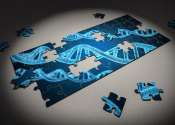The dark side of our genes – healthy aging in modern times
The transition to modernity, largely driven by the Industrial Revolution, provided us with easier access to food and clean water, with antibiotics, vaccines, and modern medicine. Yet modernity did not just bring fewer infectious ...
May 18, 2018
0
8








